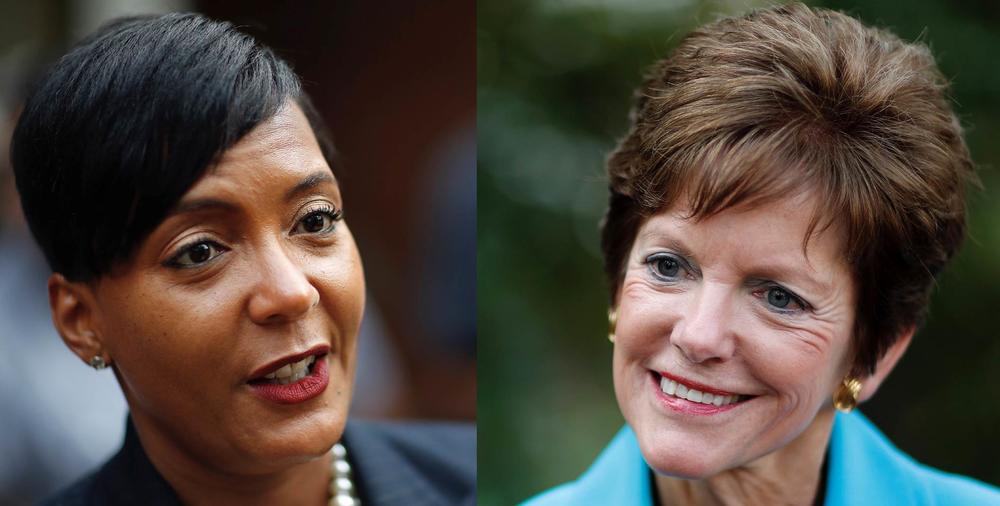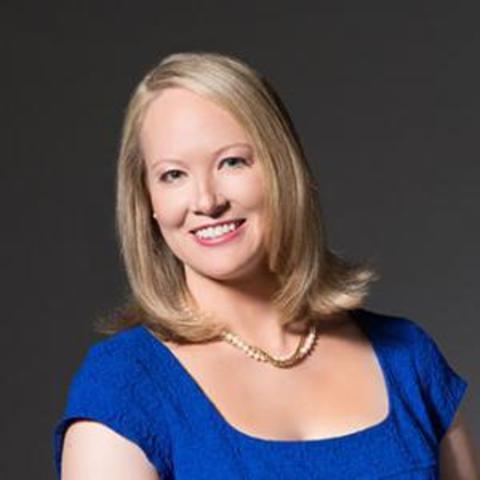Section Branding
Header Content
Atlanta's New Voter Bloc Defies Race, Politics
Primary Content
Atlanta has a new voter bloc that could sway the 2017 mayoral runoff election.
Keisha Lance Bottoms garnered 26 percent of votes on November 7, largely from the city's southern, African-American voters. Mary Norwood's 21 percent came mostly from the city's northern, white voters.
Kennesaw State University political scientist Kerwin Swint sat down with Rickey Bevington to explain why a significant group of East Atlanta voters are voting on economic policy rather than race or politics.
Kerwin Swint: There's a lot of anxiety out there. People know that we're on the precipice of change and they're anxious about what that means for the city, the communities and their neighborhoods. They don't know who to trust, you know. They don't know what it means to have Bottoms versus Norwood. Really, it's a leap of faith.
Rickey Bevington: So if people are anxious and they're taking a leap of faith why are more people expected to turn out for the runoff that the general election?
Swint: Now that you're down to two candidates - two very focused candidates - you're going to get a lot of attention by the voters. There's been some media advertising. There’s been some hostility in that advertising and in their interactions.
The voters are people who are engaged with the city of Atlanta. It's going to be very much dependent on who those voters are that come back. On November 7th, the turnout was a little higher from the North Atlanta precincts than from the rest of the city. So I think Mary Norwood can depend on a lot of her voters to come back out as well as Keisha Lance Bottoms depending on her base in South Atlanta.
I think the real key is going to be East Atlanta. And that's why we focus so much on that endorsement by Georgia Equality and [former 2017 Atlanta mayoral candidate] Cathy Woolard. Cathy Woolard voters come out to support Mary Norwood that could make a difference.
Bevington: What does this new voter bloc mean for the city's political landscape?
Swint: The voter bloc is really focused on things like the Atlanta BeltLine, livable communities, affordable housing, amenities that you would expect to [have to] be able to live downtown. Those are some of the things Cathy Woolard and Mary Norwood have focused on. They’re less focused on race. They are more focused on city economics - not national economic pictures - but development and transportation. The kinds of things that you live with every day.
Bevington: The voters from that block were 49 percent white, 46 percent African-American. This is pretty even. Are you saying that this voter base is more likely than the average Atlanta voter to vote across racial lines?
Swint: I think they probably are because they're less focused on race. They're focused on livability and on things that are going to impact their community. That can include race. But it's a broader kind of issue base I think they’re going to be looking at.
Bevington: Why is the Georgia Equality endorsement - in addition to the Woolard endorsement – significant?
Swint: It's part of the constituency of Atlanta. Mary Norwood has been in favor of marriage equality for a while and that makes a difference to a lot of people. I think that East Atlanta vote could be the linchpin if the turnout is high enough.
Bevington: If Atlanta gets its first white mayor in 40 plus years … On Wednesday morning if I were to talk to you what would be your analysis? Why did it happen and why did it happen in 2017?
Swint: If it happens it'll be because of several things. The city's changing. The old machinery of some of the city politics has dried up - it's evaporated. Voters are looking for livable communities. They are looking for things that are going to really impact their lives apart from some of the political factors that were important before.
Secondary Content
Bottom Content


